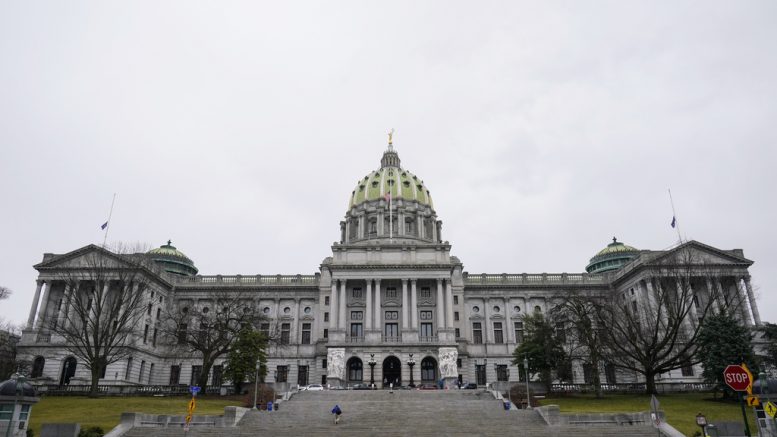HARRISBURG (AP) — Pennsylvania’s Legislature on Wednesday approved hundreds of millions of dollars for universities after a fight that has dragged on five months into the fiscal year, although the politically divided body continued to feud over elements of school funding.
Legislation to send just over $600 million to several higher education institutions passed both the House and Senate within hours, but the bill lacks the increase in aid for three major universities — Temple, Pitt and Penn State — that Democrats had sought and that Republicans opposed.
Gov. Josh Shapiro, a Democrat, was expected to sign it, lawmakers said.
However, a separate schools bill that also passed the Republican-controlled Senate on Wednesday met opposition in the House, where the Democratic majority quickly stripped out a top GOP priority that largely benefits private schools.
A number of budget items have eluded agreement since House Democrats in June refused to go along with a budget deal between Shapiro and Senate Republicans. The sticking point was a new, $100 million voucher program to pay for tuition and other expenses at private and religious schools.
The resulting $45 billion budget that Shapiro signed in August doesn’t authorize the tuition voucher program, and — as a result — Republicans have held up elements of it that Democrats had supported.
In Wednesday’s floor debate, Senate Majority Leader Joe Pittman, a Republican from Indiana County, acknowledged criticism that the legislation lacks extra aid for the poorest public schools that Democrats had sought.
Rather, Pittman said it is important to focus on what the Senate was accomplishing in a bipartisan vote.
“I’m proud of the work this institution has put into this legislation,” Pittman said. “I’m proud of the work we are accomplishing on a bipartisan basis to move education in this commonwealth forward.”
Still, House Majority Leader Matt Bradford, a Democrat from Montgomery County, said he didn’t want to keep “ping-ponging” bills back and forth between the chambers, but suggested that Republicans have gone back on their budget commitments.
“There are those who want to renegotiate a budget that was passed months ago,” Bradford said during floor debate.
The higher education bill headed for Shapiro’s desk sends $603 million to five institutions, including an increase of about $3 million apiece for Lincoln University and Penn College of Technology. But the bill reflects a continued Republican refusal to increase subsidies for Temple, Pitt and Penn State.
Democrats had sought an increase of 7% for each institution, or $20 million total, but House Democratic leaders said they agreed to approve a bill without the increase because the schools needed the money right away.
Republicans have insisted that the three universities not increase tuition, which each institution did for this school year. Without state aid, though, the universities say it is difficult to keep tuition flat.
Funding for private and public schools remains a source of disagreement.
The budget that Shapiro signed boosted aid for public school instruction and operations by $600 million, or about 7%.
But Republicans have blocked an extra $100 million in “Level Up” funding that Democrats wanted for the poorest public schools — and, for that matter, the billions of extra dollars that public school advocates say is necessary to adequately fund public schools.
Senate Republicans insist that House Democrats must approve the $100 million private school voucher program as part of a deal to get more money for public schools.
The Senate’s schools bill that passed Wednesday marshaled an extra $150 million — for a total of $555 million — for an educational tax credit program, money from which goes largely to subsidize tuition at private schools.
The tax credit program — like the voucher program — is championed primarily by Republicans. In the House, Democrats promptly stripped out the tax credit program from the bill.
Remaining provisions in the schools bill allows $100 million in federal aid to flow to school mental health services and $75 million to clean up lead, asbestos, mold and other environmental health hazards in school buildings.
The bill also creates a program to award up to $10,000 to student teachers in an effort to encourage more people to become educators.
The stipends are aimed at easing a hardship for college students finishing up a teaching degree who each must student-teach in schools for 12 weeks without pay.
“We are literally running out of teachers,” Sen. Vincent Hughes, a Democrat from Philadelphia, said during floor debate.






































